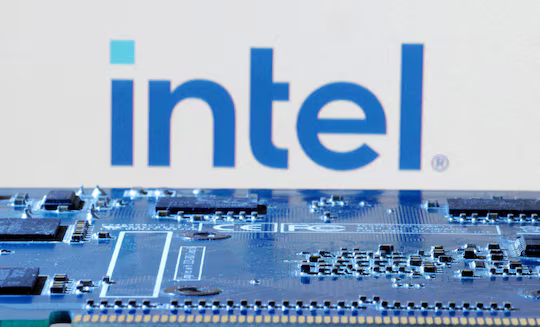Intel, one of the world’s largest chipmakers, has announced major cost-cutting measures that will include workforce reductions and scaled-back investments, despite having recently received $7.9 billion in federal funding aimed at strengthening US semiconductor manufacturing, the Washington Post reports.
On Thursday, the company revealed plans to reduce its capital expenditures for 2025 by 10%, from $20 billion to $18 billion, as part of a broader effort to increase operational efficiency. In a message to employees, new CEO Lip-Bu Tan acknowledged the impact of the cuts, stating that they would include “eliminating management layers” and reducing headcount. He added that these were “very hard decisions” necessary to stabilize the company’s future.
The announcement follows a challenging period for Intel, which posted an $800 million loss in the first quarter of 2025, with revenue remaining flat year-over-year at $12.7 billion. The company continues to face stiff competition in the booming artificial intelligence (AI) hardware market, lagging behind competitors like Nvidia and Taiwan Semiconductor Manufacturing Company (TSMC).
Intel’s stock saw mixed reactions, closing over 4% higher Thursday before declining in after-hours trading. The company’s share price has fallen approximately 38% over the past year.
Earlier reports from Bloomberg indicated that Intel could reduce its workforce by over 20%, following last August’s announcement of 15,000 job cuts. The company ended 2024 with approximately 108,900 employees, but Chief Financial Officer David Zinsner said Thursday that further details on job reductions are still being evaluated.
Intel’s financial and strategic challenges add complexity to ongoing efforts by US policymakers to revitalize domestic chip production. The Biden administration’s CHIPS Act, passed in 2022 with bipartisan support, allocated $52 billion in funding to encourage US-based semiconductor manufacturing. Intel was awarded $7.86 billion in direct grants from the program, in addition to another $3 billion for collaborative projects with the Department of Defense.
While President Biden has strongly supported the CHIPS Act, Intel’s performance has also become a point of political focus for former President Donald Trump. Trump has made boosting US chip production a key aspect of his trade policy platform, criticizing Biden’s strategy while promoting tariffs on Taiwan, a major center for global chip production. Although some tariffs on electronics and chips were recently paused, the Trump campaign has emphasized reducing US reliance on foreign technology.
Intel’s decline in manufacturing leadership is part of a broader industry shift. Once dominant in chip design and production, the company now trails rivals who have specialized in design or fabrication. Nvidia, for example, has surged ahead by focusing on AI-specific chip design and outsourcing production to TSMC.
The appointment of Lip-Bu Tan, who succeeded Pat Gelsinger as CEO in March, signals a renewed focus on engineering excellence. In his internal message, Tan emphasized prioritizing talent and product development aligned with the growing demand for AI capabilities. He also noted that the company will require employees to return to the office four days per week starting September 1.










The latest news in your social feeds
Subscribe to our social media platforms to stay tuned